|
Short version is bus passengers on RTC buses are trash and commit violence. So RTC is adding armed security and "gun detection" cameras. Couple of things: this appears aimed at scumbags committing crimes, not a general "no guns" policy. In other words, RTC is doing more than security theater.
As for the gun detection thing, sounds like they're looking for people using guns in a criminal manner, not people who are merely carrying. As a reminder, open and concealed carry is still legal on RTC buses. It's not prohibited by law and in theory state preemption would apply. Also I don't think RTC is actually worried about the peaceable open/concealed carrier. In Garland v. Cargill, the US Supreme Court found that the ATF overreached and exceeded its authority by banning bump fire stocks by fiat. Per SCOTUS, the ATF can outlaw things by regulation alone; only Congress can do that. But it would be perfectly okay under this ruling for Congress to have outlawed bump fire stocks, because apparently "shall not be infringed" is too complicated for SCOTUS to understand. Anyhow, legislative bans are still okay, and the ban in Nevada is at the state level, so it still stands. In Nevada, bump stocks are illegal to possess, make, transfer, or sell under NRS 202.274. This statute was enacted in response to the Mandalay Bay shooting on October 1, 2017. Violation of this law is classified as a category D felony, carrying penalties of 1 to 4 years in state prison and fines up to $5,000.
Continuing on the theme of .22 caliber equivalents of carry/duty pistols for plinking and cheap practice to build high reps at low costs, I bought at SIG P322 with a red dot sight to "learn" how to shoot pistol red dots.
First observations is that red dots on pistols are great. I had a much better experience than with the Glock/Holosun combo a while back. But the SIG Romeo Zero Elite red dot sucks. Issue #1 is the red dot brightness spontaneously changing when firing (see photos). The button is also terribly placed, too small, and too hard to activate. Right size housing, crappy everything else. I get the feeling it'll fail early and need to be replaced with something else. Other than that, I'm impressed with the pistol itself. Will probably replace the Glock 44 for plinking, though the Glock and its iron sights will be the preferred practice tool, since I don't carry a red dot for self-defense. Mission First Tactical Translucent EXD 30 Polymer Magazine
Can it hold up like other see-through polymer mags? Lancer, for example? The feed lips on this one are all plastic. If so, looks promising. Only 13 states had open carry bans prior to 1900, 3 of which were repealed before 1900, and 2 more shortly thereafter. Mainly it was in the South where all forms of carry were banned before the 20th century. You’ll notice from reading these that there is often an evolutionary process and the legislators were basically guessing on what might make violence stop. After the 20th century, immigration pressures and increasing urbanization seem to have spurred the adoption of greater handgun regulation. Before this, the history shows concealed weapon laws were an attempt at crime control; "If they can't carry guns, then they won't shoot each other!" Well, we know that experiment failed. My research is incomplete and stops around the 1920s-1930s due to the limitations of online databases. I've also stopped at the early modern era, going up to the late 1910s and 1920s "Model Pistol Acts" that were the predecessors and inspiration for the National Firearms Act. You'll notice that western states repealed their bans, as did other states. The "why" is what remains to research. In some cases they just wrote the new laws to either exclude (or include, in those cases) open carry. Idaho's supreme court threw out the open carry ban, as did Georgia's, except the latter went ahead and reinstated it later anyway. Some of these laws may be debatable: South Carolina's 1901 restriction made it so that basically any pratical handgun was unable to be carried; I suppose AR pistols would have been kosher. A Tennessee court decision that would do today's 9th Circuit proud allowed one to openly carry a pistol in the hand, i.e. as one would use while chasing a burglar or defending himself (sorta like California today!), although no one in their right mind would just walk around normally with a pistol in their hand.
So dude's dog little fluffy dog gets attacked by a Rottweiler, guy goes to grab the dog away, gets bit in the process, and shoots the Rottweiler. A human gets pepper sprayed ("maced") after.
Some interesting points. Pepper spray came into play AFTER the defensive gun use. Note that the owner didn't try pepper spraying the dog first. Potentially, using it first against the dog v. shooting could have adversely affected the humans and the victim's ability to ward of further attack. A verbal and possibly physical confrontation followed the dog attack. The witnesses were apparently pissed off. They didn't feel that the shooter was a threat to them. Also it looks like some of the bystanders tried to take the shooter's dog or the leash away. Someone felt it would be safe enough to confront a guy who just fired a gun, possibly trying to whack the guy with a plastic thing (that person was pepper sprayed). The newspaper highlights in addition to his pistol, the shooter had a pocketknife and pepper spray; all stuff that is routinely carried by prepared citizens as part of the EDC. Following on such "blame the victim" lawsuits like:
Chicago Sues Glock Over Criminals’ Illegal Modifications, and Cities Sue Hyundai, Kia After Wave of Car Thefts Chicago is arguing that Glocks are machine guns because they can easily have "Glock switches" (autosears) added to make the guns into machine guns. Therefore, the Austrian gun company and it's American branch must be held responsible for the behavior of felonious hoodrats using Chinese-made products sold and imported illegally. Austin, TX, not to be outdone, decided to sue several popular clothing manufacturers for rape. Their theory, articulated in their complaint, is that short skirts exposing women's legs cause men to rape women. Therefore, the skirt designer, retailers, and manufacturers must be held accountable. "We know now that short skirts cause rape. Well, not directly, but these skirts make it easier for rapists. We need to hold these dressmakers accountable," said one city councilwoman. Mohammad Bin Ahmed, a prominent advocate of Shariah law, agreed. "These short skirts entice men. Now, we in the corrupt United States we must forgive the women, but there is no forgiveness for the companies that sell these things." The lawsuit was joined by several personal injury attorneys with prominent billboards in the Texas' capitol metro area. They could not be reached for comment and have not submitted briefs, but they do expect to receive a substantial settlement. But contrary viewpoints exist. Many self-defense instructors and rape survivors have said "Get a gun and shoot the bastards. Wear what you want. You aren't responsible for someone else's criminal acts." Shrill anti-gun activists said "No one deserves to die over rape," and then promptly blocked us. Nephi Oliva, a controversial member of the Las Vegas concealed carry and firearms community, was arrested for continuing to teach CCW classes despite the suspension of his license. You may remember incidents like the class held at the anti-gun LVCC Library District where he was only a speaker and there was another instructor to certify the class. Or the incident where "the world's largest CCW class" was held but Metro wouldn't accept the certifications from the event. Police said they believe Oliva, who also uses the name Nephi Khaliki, continued teaching classes and would provide paperwork signed by an active CCW instructor, despite him teaching the classes. Good riddance. One morning recently, I woke up to an email from a suicidal woman looking for help buying a gun. I'm sharing this publicly for two reasons: 1. Us gun people do actually care about people and don't want them to commit suicide by any means; and, 2. If this is some sort of weird thing to embarrass us, it's not gonna work. Here is the email I received: "Hello, I am going to commit suicide and id like to do it with a gun. Unfortunately I already tried many times but was revived and now I can't legally own a fire arm. I'm not really worried about that though because obviously they can't put a dead girl in prison. Your website is good because it seems like money is more important than human life, so who ever is running it will be on my side. You get to sell a gun. I get to finally be happy. It's a win win. I'll pay anything. Please help, I tried pills and ropes and I have 116 stitches on one wrist alone. This is my only hope. Please help." I should be needless to say, but I've contacted the authorities. Luckily, her email address came back to some Google results, including a phone number, which I was then able to Google to find some professional listings with addresses, so the police in each city were notified. I hope they are able to contact her and get her the help she needs. I was prepared to try and human engineer at least a city and state from her if this failed, but this info seems solid enough to turn it over to the police. Godspeed.
And yeah, prohibited person laws do seem to help. Once upon a time I thought full-size handguns were the way to go for "duty" carry. You know, law enforcement, open carry in the woods, home defense, and end-of-the-world. Longer sight radius, better grip, more capacity in say a Glock 17. Heck, when I started buying my own guns I was still under the impression of my agency's Sig P226s. Well as it turns out full-size guns aren't great concealed (or open) carry pieces. They're big, heavy, and the long grip likes to bang into stuff. You sit funny in cars. That's why police cars have "special" seats from the factory in some cases (not sure what's so special about them). That grip length is unnecessary. There's a reason that special forces gravitate towards the compact Glock 19 and why it's so popular with detectives and concealed carriers. Even a lot of uniformed cops carry them. The grip length is just short enough not to be obtrusive when sitting but long enough to get a proper grip. Now we're seeing even thinner guns that grip better than the chonky Glock grip, like the Sig P365 or Glock 48 (half a G19). The short grip lengths of the original P365 or the Glock 26/43 aren't ideal for shooting, so we see people really enjoy the longer grip modules that create a kinda inverted L shape. It's interesting to see how taste has evolved regarding form in guns and how that bigger isn't always better. All of this change and innovation has been driven by concealed carry—the civilian market—whereas before it was all about cops, soldiers, and competition shooters. Nice to live in the time we do. Review wise, I'm enjoying carrying and shooting the P365 in lieu of the thicker G26 (width is another factor I didn't touch on much here). More practical data when the weather warms up. |
Archives
June 2024
CategoriesBlog roll
Clayton E. Cramer Gun Watch Gun Free Zone The War on Guns Commander Zero The View From Out West |
||||||


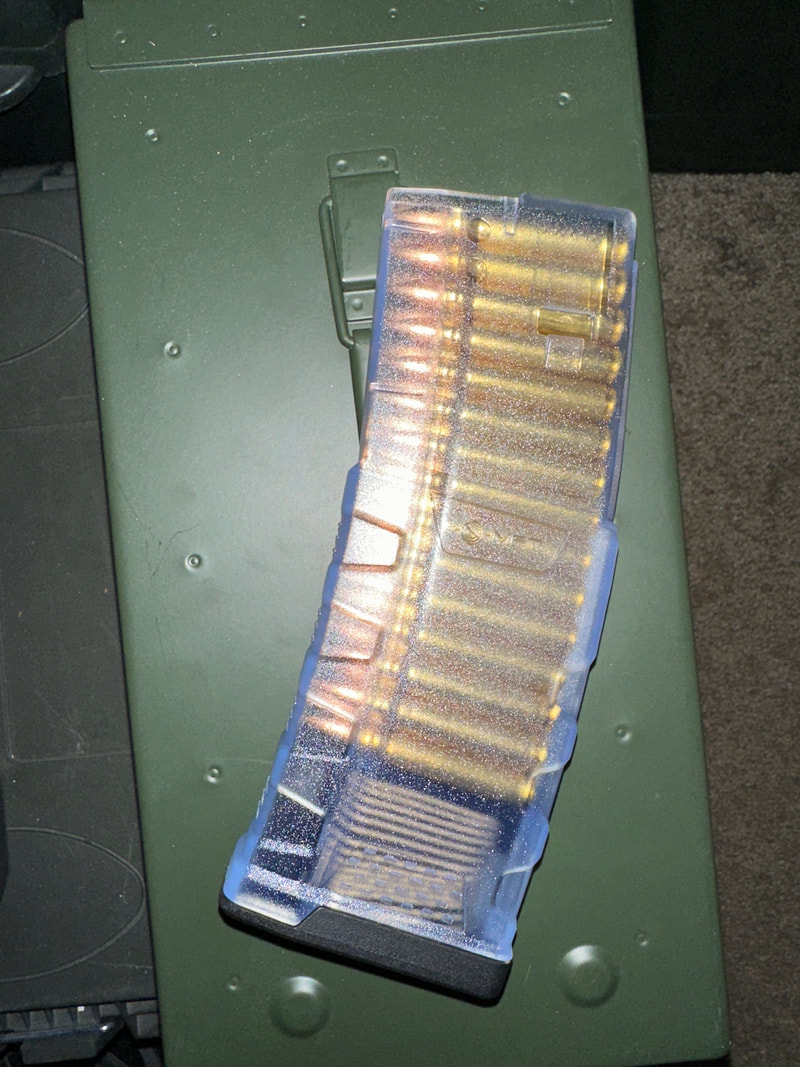
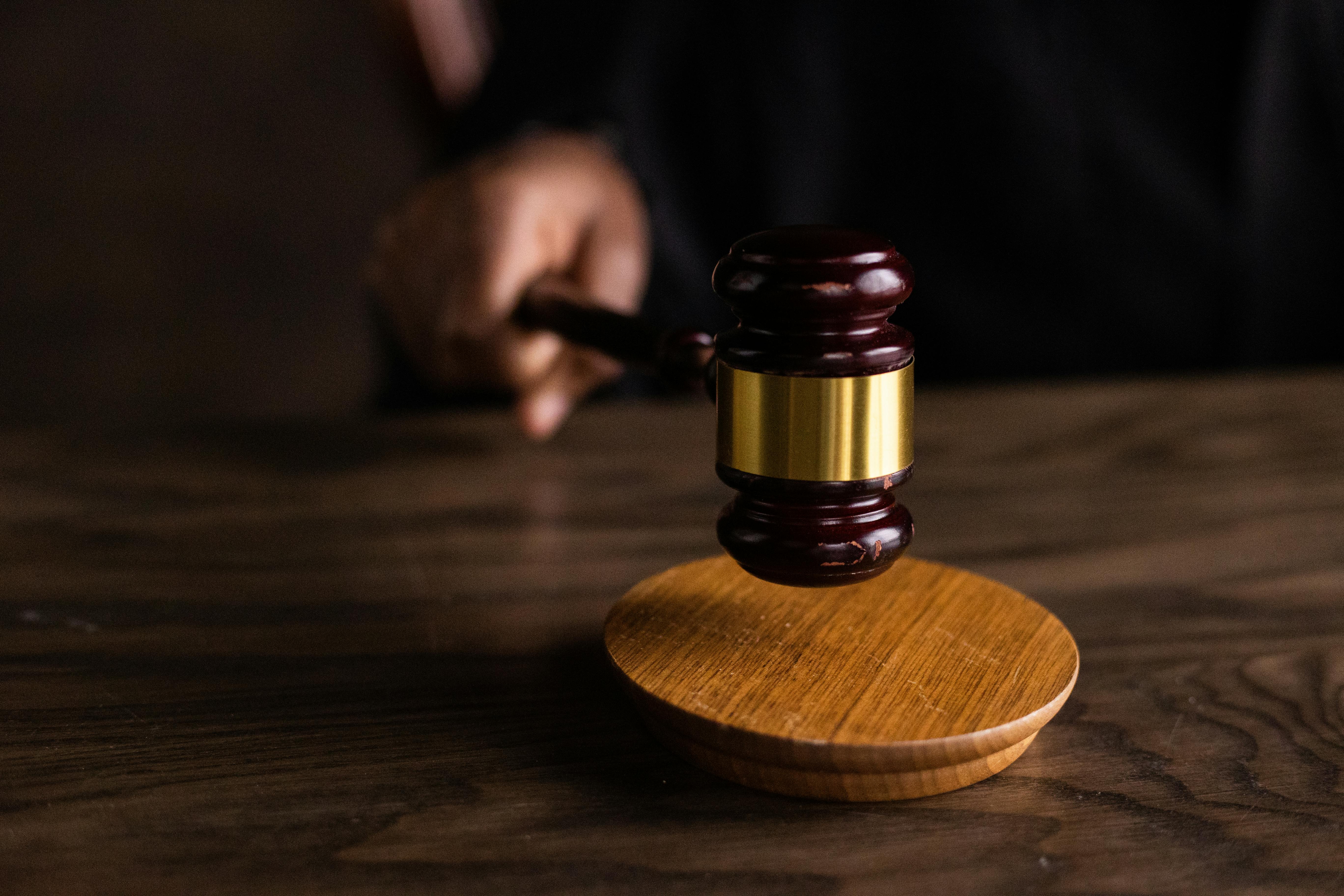
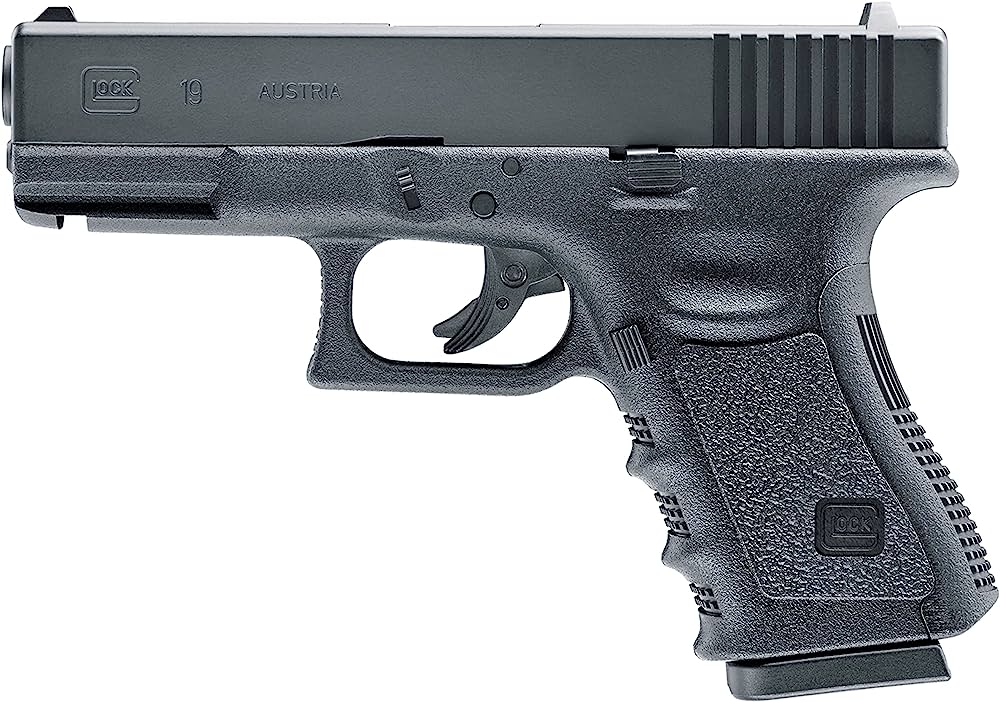
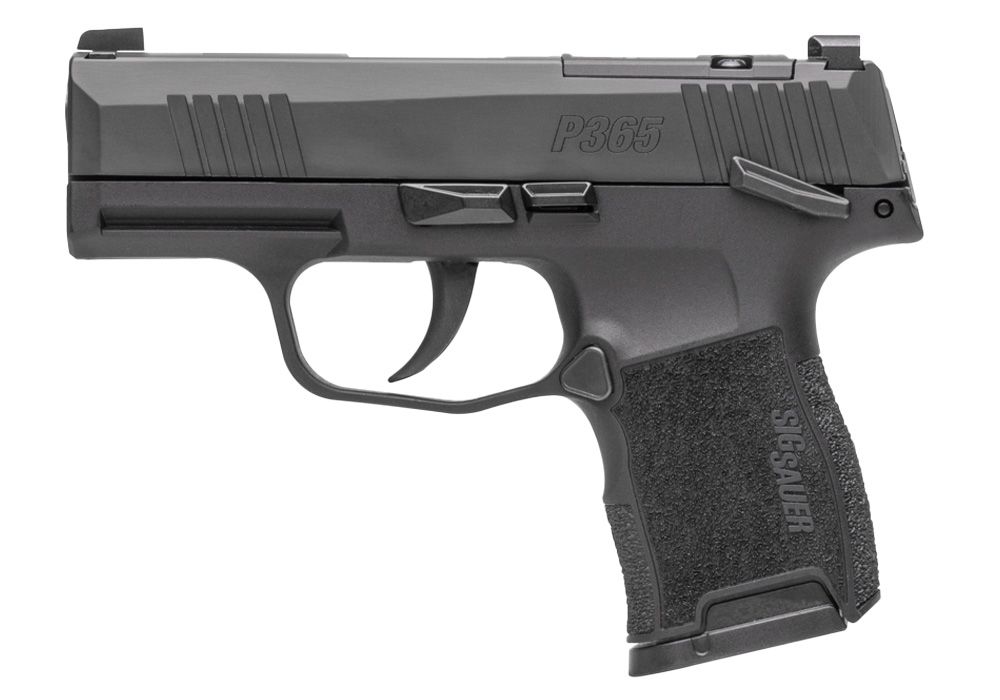
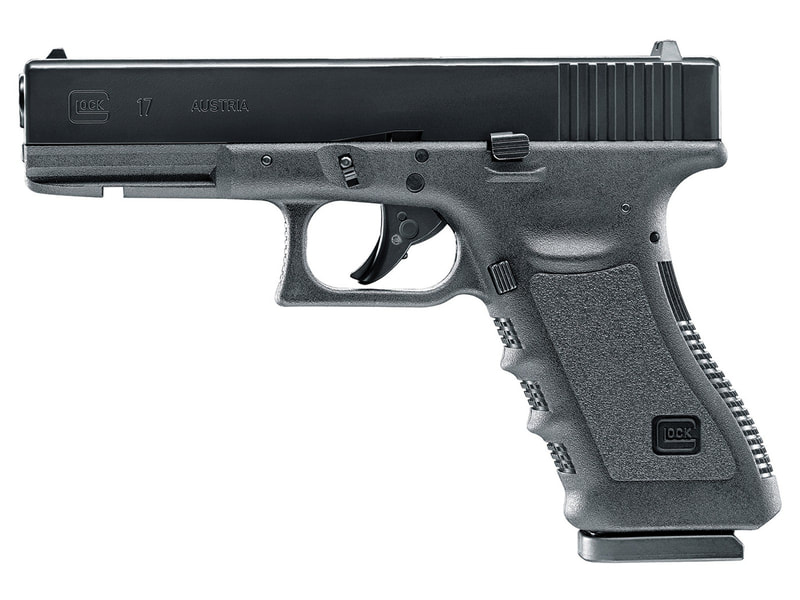
 RSS Feed
RSS Feed